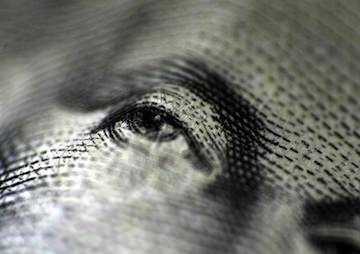It Pays to Be a Political Fundraiser
In a post-Citizens United world, the growing influence of lavishly paid fundraisers like Mary Pat Bonner has angered donors to both Democrats and Republicans. Photo by peasap / We Love Costa Rica / CC BY 2.0
Photo by peasap / We Love Costa Rica / CC BY 2.0
Photo by peasap / We Love Costa Rica / CC BY 2.0
In a post-Citizens United world, the growing influence of lavishly paid fundraisers like Mary Pat Bonner has angered donors to both Democrats and Republicans.
Bonner is a leading fundraiser for Hillary Clinton’s expected presidential campaign. The New York Times’ Nicholas Confessore reports that tax filings and campaign disclosures of Bonner’s consulting firm, the Bonner Group, reveal that she typically earns a commission of 12.5 percent on any money she brings in. That quickly brings Bonner’s pay into the millions of dollars. Her company’s database keeps on file the contact information, records on past giving and known political ties of 70,000 donors.
Some organizations, such as Freedom Partners, run by the conservative billionaires Charles and David Koch, emphasize their reliance on salaried staff members to raise money. Confessore quotes Andrew Sabin, a prominent Republican donor, as saying, “I want my money to go to the candidate, to get them elected; I don’t want it to go to middlemen.”
“Her tenacity, ties to wealthy givers and mastery of making donors happy have made Ms. Bonner, 48, among the most successful practitioners of a trade that is virtually invisible to voters but has taken on immense power and influence,” Confessore continues. The commission method of compensation has led some donors to suspect that others are getting preferential treatment.
Confessore writes:
Political fund-raisers are typically paid monthly retainers, which can reach $25,000 a month during campaigns. The Bonner Group is paid almost exclusively on commission, a practice that is legal but frowned upon by some fund-raising consultants, who say it leads to fights with clients and other consultants over credit. It is considered unethical by the Association of Fundraising Professionals, partly because it can encourage abuses and, in the charity world, places self-gain over philanthropy.
… In an email, Ms. Bonner said she routinely disclosed to donors that she was being paid on commission. “We charge all of our clients the same way, so there is no incentive for anyone in the firm to focus on one client more than another,” Ms. Bonner said.
Of course, vague as it is, Bonner’s statement is problematic. If a commission from one donor is significantly larger than a commission from another, her company, which profits from the exchange, has every incentive to treat the larger donor preferentially.
Confessore’s report is a view into one of the more subtle aspects of money-grubbing in the political establishment. Read more here.
— Posted by Alexander Reed Kelly.
Your support matters…Independent journalism is under threat and overshadowed by heavily funded mainstream media.
You can help level the playing field. Become a member.
Your tax-deductible contribution keeps us digging beneath the headlines to give you thought-provoking, investigative reporting and analysis that unearths what's really happening- without compromise.
Give today to support our courageous, independent journalists.






You need to be a supporter to comment.
There are currently no responses to this article.
Be the first to respond.